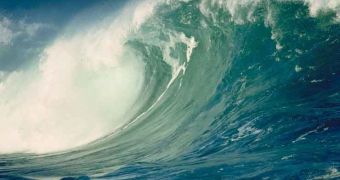The medical journal Epilepsia has recently witnessed the publication of a new study stating that life-threatening situations such as the tsunami that hit the Japanese coast back in 2011 are likely to translate into an increased risk of seizures.
More precisely, the specialists who looked into this issue explain that, in the aftermath of this natural catastrophe, as many as 13 people living in this part of the country required urgent medical attention following their beginning to seize.
These 13 cases of seizures were reported within a period of just eight weeks.
What led researchers to the idea that the seizures might have come as a result of the tsunami is the fact that, prior to this incident, just one man was admitted for seizures in two months' time.
However, the study emphasized the fact that 11 of these 13 patients who presented to the hospital with seizures had preexisting brain disorders.
Thus, some of them were suffering with epilepsy, whereas the others admitted to having injured their head in one way or another, and to having experienced a stroke at one point in their lives. Opposing Views quotes the study's lead author, Ichiyo Shibahara, who wishes to draw attention to how, despite the fact that their findings do not necessarily prove that stress is a universal risk factor for seizures, it is nonetheless true that “stress associated with life-threatening situations may enhance seizure generation.”
Commenting on the claim that such disasters might up the risk for seizures, William Theodore from the US National Institute for Neurological Disorders and Stroke argued that he was yet to be 100% convinced that tsunamis could cause seizures.
From where he stands, the physical trauma, the infections and the lack of sleep that follow such catastrophes are the more likely candidates when it comes to upping the risk of seizures.
“This is interesting, but I'm not 100 percent convinced,” he said. However, he did warn people that, “If you already have seizures and you're taking medication, always make sure you have a decent supply just in case some natural disaster occurs.”

 14 DAY TRIAL //
14 DAY TRIAL //